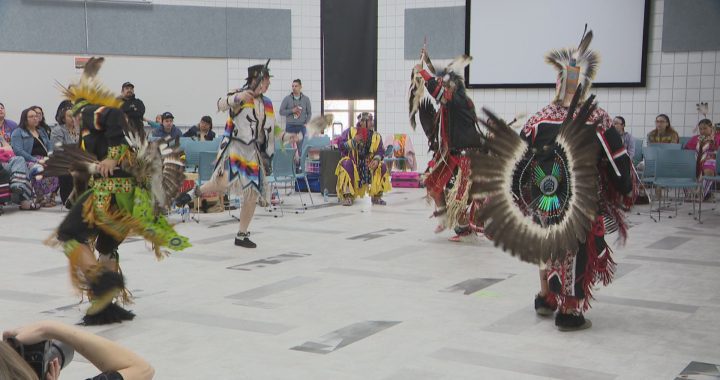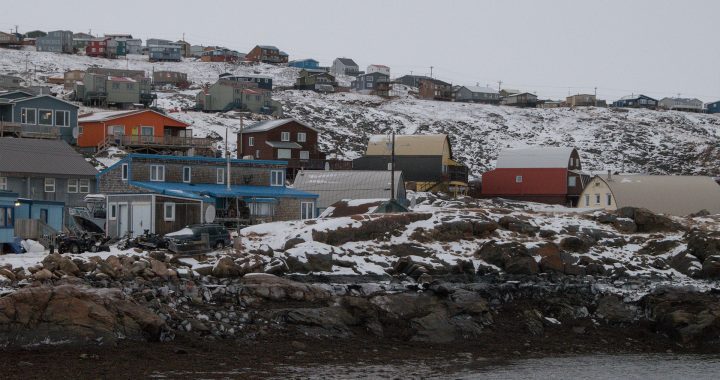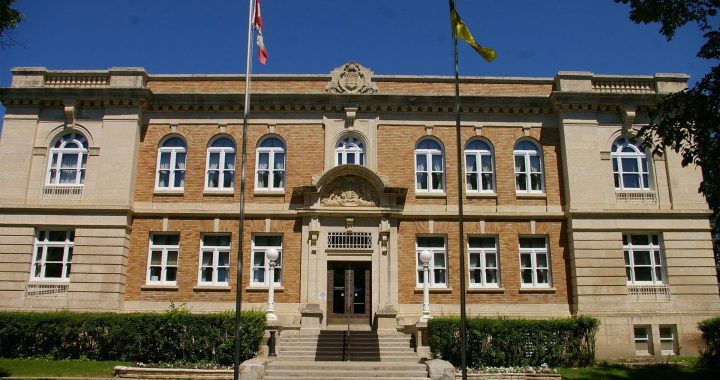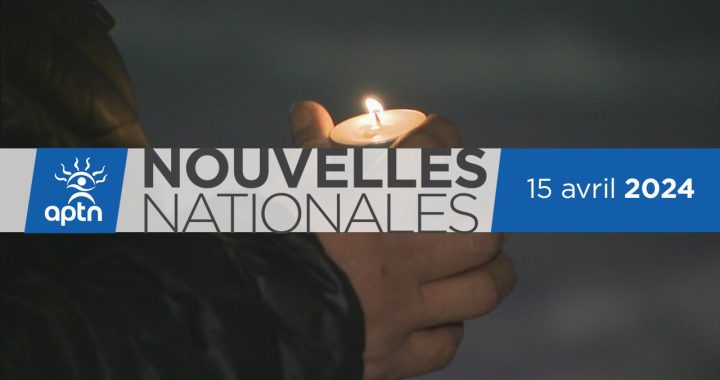The federal government is proposing an opt-in tax collection system for First Nation communities that will collect money for fuel, alcohol, cannabis, tobacco and vaping products according to Budget 2024 that was tabled in the House of Commons on Tuesday.
“A fair fiscal relationship means supporting an Indigenous tax jurisdiction that advances self-determination and builds strong fiscal relationships while generating important revenues for community priorities,” the budget document said. “This is an important part of reconciliation.”
According to officials from the department, only communities that want to participate in the program will. The budget doesn’t say how much money the tax would collect or how many First Nations have shown an interest in the program.
The program, called FACT [fuel, alcohol, cannabis, tobacco], is expected to be worked on over the coming months.
“The federal government will negotiate additional First Nations Goods and Services Tax agreements with interested Indigenous governments, and personal income tax arrangements with interested self-governing Indigenous governments, along with facilitating similar arrangements between interested Indigenous governments and provincial and territorial governments,” the budget said.
“The federal government is exploring the potential role of tax arrangements and other tools to enable Indigenous communities to meaningfully benefit from resource development.”
The announcement was part of a $9 billion budget delivered in Ottawa that, in some instances, will fall well short of expectations from a number of groups including the Assembly of First Nations.
Loan guarantee program
As promised in its fall economic outlook, the federal government is putting in place an “Indigenous Loan Guarantee Program” that, according to Ottawa, will allow communities to access money to “share in the benefits of natural resource and energy projects.”
“The number of major natural resource and energy projects with potential for Indigenous equity participation is anticipated to grow significantly, with the First Nations Major Projects Coalition’s research expecting this potential to reach $525 billion in capital investment over the next ten years,” the budget said.
“If Canada is to make sure that Indigenous communities are able to fully benefit from the opportunities ahead, they need fair access to affordable capital that meets their unique needs.”
The program will provide up to “$5 billion in loan guarantees to unlock access to capital for Indigenous communities, creating economic opportunities and supporting their economic development priorities.
“The Indigenous Loan Guarantee Program will provide access to affordable capital to Indigenous governments and communities. Loans would be provided by financial institutions or other lenders and guaranteed by the Government of Canada. This means that the borrower would benefit from the government’s AAA credit ratings, delivering a lower interest rate than is available to most borrowers,” according to the budget.
According to the budget, communities wouldn’t be limited to one kind of natural resource development, for instance, just oil extraction. Eligibility would extend to “Indigenous governments and their wholly owned and controlled entities.”
“The program would support projects across the country, and a range of project types, to ensure that Indigenous communities across the country benefit from the program,” the budget said.
According to the government, Natural Resources Canada will be responsible for accepting applications and a Crown corporation called the Canada Development Investment Corporation will vet them.
The government is also pledging to put $350 million over five years to “renew Canada’s commitment to Indigenous Financial Institutions, including $30 million over five years for the Métis Capital Corporations which have, for decades, provided critical support to Métis entrepreneurs and businesses.”
Housing:
Fresh off a report from the Assembly of First Nations that said $350 billion is needed to close the housing and infrastructure gap in First Nations across the country, Budget 2024 is only making a small dent in that number.
While 2023 budget put aside $1.9 billion for housing over five years, this year the amount put aside drops to $918 million over five years “to accelerate work in narrowing First Nations, Inuit, and Métis housing and infrastructure gaps,” the government said in the budget.
According to the budget, another $4 billion over seven years starting this year will go towards implementing the “Urban, Rural, and Northern Indigenous Housing Strategy” which is currently being developed the government said.
It’s not clear how many homes will be built from this money.
The budget said more money will be put aside for the “On-Reserve Income Assistance program” which is available across the provinces and Yukon. This year there will be investments and supports for eligible persons with disabilities. The program is scheduled to receive $596.2 million over five years and then $119.2 million per after that.
“Another $117.6 million over three years starting in 2024-25 for case management and pre-employment supports to increase access to good job opportunities; and, $213.5 million over five years, starting in 2024-25, and $49.8 million per year ongoing to implement income supports for eligible persons with disabilities aligned with those provided in all provinces and Yukon.
“This unprecedented new support will help ensure Indigenous persons with disabilities have a fair chance at success,” the budget said.
Housing in Nunavut is as dire as any place in Canada. Nunavut’s housing minister told APTN in 2019 that the number of new units of housing needed in the territory at 3,300, at a cost of more than $1 billion.
Budget 2024 is giving Iqaluit $8.9 million to build 1,450 homes over the next decade and another $18.1 million to Nunavut’s other communities for another 1,697 homes over the same ten year period.
The government is also putting $50 million over two years towards “innovative housing solutions,” to support the design and construction of “modular homes the use of 3D printing, mass timber construction, and panelized construction.”
Some of that money will go towards a company called Nunafab Corp. which is based in Cambridge Bay, Nunavut that is building modular homes.
Policing and emergency management
Policing issues are nothing new for people in First Nations and Inuit communities. The complaints are similar – service isn’t available at times or culturally appropriate. The issue was highlighted in James Smith Cree Nation when a man killed 17 people in the community and one in nearby Weldon, Sask.
According to Ottawa, the budget is going to “strengthen Indigenous oversight and development of policing.”
The Liberals re-announced a budget item from 2021 with $861 million over five years going towards community policing. This year’s quota is $145 million “to enhance funding for policing and community safety in Indigenous communities.”
“To further address policing needs identified by Indigenous communities, Budget 2024 proposes to provide: $267.5 million over five years, starting in 2024-25, and $92.5 million per year ongoing to Public Safety Canada for the First Nations and Inuit Policing Program and to support the work of Public Safety Canada’s Indigenous Secretariat; and $200 million over five years, starting in 2024-25, to repair, renovate and replace policing facilities in First Nations and Inuit communities.”
The federal government said it’s continuing to co-develop legislation with First Nations partners to recognize First Nations policing as an essential service.
The budget is also putting money towards communities “where there is a higher risk of natural disasters.” According to the document, the money will go towards “emergency management response and recovery.”
“The legacy of colonialism has meant that Indigenous emergency response resources have been underfunded, and are ill-equipped to fight wildfires and other disasters, which are becoming more frequent and intense due to climate change,” said the document.
In the 2023 fall update, the Liberals put $260 million towards responding to emergencies. Much of that is because of the 2023 wildfire season which went down as the “most destructive on record.” According to the government, 95 Indigenous communities were evacuated.
Budget 2024 proposed to spend $9 million for emergency response in the Northwest Territories, $145.2 million over five years starting this year to develop “greater climate resiliency” and create infrastructure to protect communities. Another $20.9 million is being set aside over three years to support the “First Nations Fire Protection Strategy, 2023 to 2028 by distributing fire alarms and fire extinguishers to homes and community facilities on-reserve, as well as fire-related education programs.”
Other items in the budget:
Health care
-$2 billion over ten years, starting in 2024-25, for a “distinctions-based Indigenous Health Equity Fund. This fund, currently being co-developed with Indigenous partners, will address the unique challenges Indigenous Peoples face when accessing health care services, and support immediate and long-term Indigenous health priorities.
-$811 million over five years, beginning in 2023-24, to support medical travel and to maintain medically necessary services through the Non-Insured Health Benefits Program, including mental health services, dental and vision care, and medications.
-$8.2 billion over ten years, starting in 2023-24, to renew the First Nations Health Authority Funding Agreement in British Columbia.
– $1.6 billion over two years, starting in 2024-25, to ensure access to safe drinking water and treated wastewater in First Nations communities.
-$562.5 million in 2024-25 to support medically necessary services through the Non-Insured Health Benefits Program, which supports a range of benefits for First Nations and Inuit people, including mental, health services, medical travel, medications, and more;
-$390.4 million over four years, starting in 2024-25, to build or renovate health facilities.
-$104.9 million over five years, starting in 2024-25, for health transformation initiatives to support First Nations self-determination in the design and delivery of health services in their communities; and $57.5 million over three years, starting in 2024-25, which builds on previous federal investments to construct a mercury care home in Grassy Narrows First Nation.
Supporting Indigenous Mental Health:
-$630.2 million over two years, starting in 2024-25, to support Indigenous people’s access to mental health services, including through distinctions-based mental wellness strategies.
Jordan’s Principle and education:
-$1.6 billion over two years, starting in 2023-24, to ensure First Nations children continue to receive the support they need through Jordan’s Principle.
-$1.3 billion over five years, starting in 2023-24, to support Canada’s continued efforts to work with Indigenous communities to implement An Act respecting First Nations, Inuit and Métis children, youth and families.
-$649.4 million over two years, starting in 2024-25, to improve elementary and secondary education on reserve, and ensure funding formulas meet the needs of growing communities; –$545.1 million over three years, starting in 2024-25, for K-12 infrastructure to build and renovate safe and healthy learning environments for First Nations students.
First Nation Post-Secondary Education:
-$242.7 million over three years, starting in 2024-25, to increase access to post-secondary education for First Nations students through the Post-Secondary Student Support Program.
Early childhood education:
-$1.8 billion over 11 years, starting in 2023-24 to support communities in exercising jurisdiction under An Act respecting First Nations, Inuit and Métis children, youth and families, including the first Inuit agreement to support community-led, prevention-based solutions to reduce the number of children in care.
Supporting Indigenous Cultures:
-$225 million over five years, starting in 2024-25, with $45 million per year ongoing to Canadian Heritage for Indigenous languages and cultures programs, in support of Indigenous Languages Act, which is set for its first five-year review in October 2025.
-$65 million over five years, starting in 2024-25, with $13 million per year ongoing to Canadian Heritage to permanently support the Indigenous Screen Office and ensure Indigenous Peoples can tell their own stories and see themselves reflected on screen.
Supporting Urban Indigenous Peoples:
$60 million over two years, starting in 2024-25, to support Friendship Centres, across the country, which provide much-needed supports and services to members of their communities across a range of areas including health, housing, education, recreation, language, justice, employment, economic development, culture, and community wellness.
Northern Food Security:
-$23.2 million for Nutrition North Canada’s subsidy program to lower the cost of nutritious food and other essential household items.
-$101.1 million over three years starting in 2024-25, to support the Harvesters Support Grant and Community Food Program Fund and promote Indigenous communities in implementing culturally appropriate, local solutions to address food insecurity.
Strengthening Access to Culturally Important Foods:
-$14.9 million over three years, starting in 2024-25, to renew and expand the Northern Isolated Community Initiatives Fund to all regions of Inuit Nunangat to support local and Indigenous food production systems, including innovative northern food businesses, which contribute to food security in the North.
-$25.1 million over two years, starting in 2024-25, on a cash basis, to expand the Canadian Shellfish Sanitation Program to assist Indigenous communities to safely access shellfish harvest for food, as well as social and ceremonial purposes.
-$2.8 million over three years, starting in 2024-25, to implement the United Nations Declaration on the Rights of Indigenous Peoples Act (UNDA) Action Plan Measures to bolster the policy and engagement capacity among Inuit Tapiriit Kanatami and Inuit Treaty Organizations to co-develop legislative and policy options to facilitate the production, sale, and trade of traditional and country food.
Red Dress Alert:
-$1.3 million over three years [on top of $2.2 billion over five years announced in 2021 to go towards issues identified by the national MMIWG inquiry] to co-develop with Indigenous partners, on a priority first phase, a regional Red Dress Alert system.
Support for Indigenous Justice Programming:
-$87 million over five years, starting in 2024-25, and $11.3 million per year ongoing, to the Department of Justice for Indigenous justice programming, including: $56.4 million over five years and $11.3 million per year ongoing for the Indigenous Justice Program and the Indigenous Courtwork Program.
-$5.5 million over three years to continue work on the revitalization of Indigenous laws and legal systems.
-$25.1 million over three years to renew funding for capacity building and engagement throughout the development and initial implementation of the Indigenous Justice Strategy.
Searching the Prairie Green Landfill:
-$20 million in 2024-25 [announced March 22], to support, in partnership with the Government of Manitoba, Indigenous partners, and impacted families, efforts to search the Prairie Green Landfill for the remains of missing and murdered Indigenous women.
Wildfires and the climate crisis:
-$3.6 billion to protect nature and species at risk, and more than
-$1 billion to protect marine and coastal areas.
-$1.6 billion to support Canada’s National Adaptation Strategy.
-$800 million to support Indigenous-led conservation within Canada, showcasing to the world at COP15—which Canada hosted—best practices for implementing traditional Indigenous knowledge to protect
the environment.
-Banning the manufacturing of harmful single-use plastics, and working with provinces and territories towards a goal of zero plastic waste by 2030.
-Introducing the new Electric Vehicle Availability Standard, which will improve the availability of new electric vehicles across the country.
-$2.1 billion to make zero-emission vehicles more affordable
-$1 billion to build more charging stations across Canada.
-Developing and releasing an implementation plan to phase out public financing of the fossil fuel sector, including by federal Crown corporations, by fall 2024.
-Putting a price on carbon pollution, to make big polluters pay while ensuring eight out of ten families in provinces where the federal fuel charge applies get more money back through the Canada Carbon Rebate than they pay, with lower-income households benefitting most.
-$800,000 to Natural Resources Canada to continue to partner with the International Association of Fire Fighters to help build wildfire fighting capacity and enhance training best practices, with a focus on the wildland-urban interface.
Click here to read the full budget: Budget 2024









